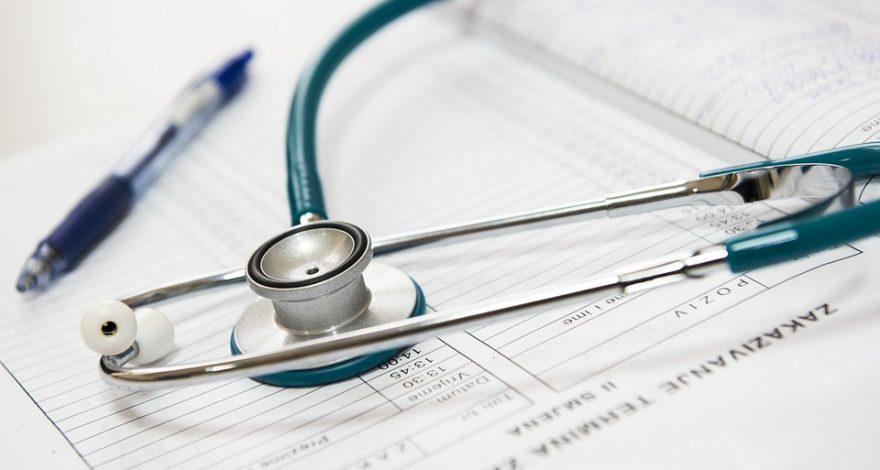If you’re applying for a U.S. green card or adjusting your immigration status, the USCIS medical exam is one of the most important steps in the process. This exam helps ensure that applicants do not have any health conditions that would make them inadmissible to the United States.
But what exactly does the USCIS medical exam involve? How should you prepare? And who is authorized to perform it?
What Is the USCIS Medical Exam?
The USCIS medical exam, officially known as the I-693 Report of Medical Examination and Vaccination Record, is a required medical evaluation for individuals applying for permanent residency (green card) or certain other immigration statuses in the United States.
The purpose of the exam is to:
- Identify any communicable diseases of public health significance
- Ensure you’ve received all required vaccinations
- Determine if you have any mental or physical disorders that may pose a threat to others
- Detect drug abuse or addiction issues
This exam is not meant to be a full physical or health screening, but a specific check-up for immigration purposes.
Who Needs the USCIS Medical Exam?
You are generally required to undergo the USCIS medical exam if:
- You’re applying for a green card (lawful permanent residency)
- You’re adjusting your status while in the U.S.
- You’re applying for certain nonimmigrant visas that require a health clearance
- You’re a refugee or asylee adjusting to permanent resident status
Children and adults alike may need the exam depending on their immigration path.
Find a Designated Civil Surgeon or Panel Physician
Only authorized physicians are allowed to conduct USCIS medical exams:
- If you’re in the U.S., you must visit a USCIS-designated civil surgeon
- If you’re applying from outside the U.S., the exam must be completed by a panel physician authorized by the U.S. embassy or consulate
To find a civil surgeon in the U.S., use the official USCIS Find a Doctor Tool.
Schedule Your Appointment
Once you've identified a certified civil surgeon:
- Call the clinic and confirm they offer USCIS medical exams
- Ask about costs, availability, and documentation required
- Schedule your appointment in advance—slots can fill up quickly
Prepare for the Exam
Before your appointment, gather the following:
- Valid government-issued photo ID (passport, driver’s license, green card if available)
- Form I-693 (do not fill it out or sign it before your appointment)
- Vaccination records and previous medical history
- List of current medications and any chronic conditions
- TB test results or chest X-ray records, if applicable
- Payment (insurance often does not cover this exam)
If you’re unsure whether your vaccination records are complete, bring whatever documentation you have. The civil surgeon will determine what else is needed.
What Happens During the USCIS Medical Exam?
The exam typically includes:
1. Review of Medical History
The civil surgeon will ask about your:
- Past illnesses and surgeries
- Mental health conditions
- Alcohol or drug use
- Current medications and allergies
Be honest and thorough. Any attempt to conceal information may lead to delays or a denial.
2. Physical Examination
The physician will conduct a basic exam that may include:
- Measurement of height, weight, and blood pressure
- Listening to heart and lungs
- Examination of skin, eyes, ears, nose, and throat
- Assessment of limbs, abdomen, and neurological functions
3. Tuberculosis (TB) Testing
- All applicants age 2 or older are required to undergo IGRA blood testing for tuberculosis
- If the test is positive, a chest X-ray will be required
- If active TB is detected, treatment must be completed before continuing the immigration process
4. Vaccination Screening
The doctor will confirm if you are up to date on all required vaccinations, which include:
- MMR (measles, mumps, rubella)
- Tetanus, diphtheria, and pertussis (Tdap)
- Varicella (chickenpox)
- Hepatitis A and B
- Influenza (seasonal)
- COVID-19
- Polio
If you are missing any vaccines, the civil surgeon can administer them or refer you to a pharmacy or health department.
5. STD and Drug Testing
Applicants aged 15 and older must be tested for:
- Syphilis (blood test)
- Gonorrhea (urine test)
While routine drug testing is not done, physicians may evaluate for signs of drug abuse or addiction based on medical history or exam findings.
What Happens After the Exam?
After your exam is complete, the civil surgeon will:
- Fill out and sign Form I-693
- Seal the completed form in an envelope (do not open it)
- Give you a copy for your records
You will then:
- Submit the sealed envelope to USCIS with your green card application
- OR bring it to your USCIS interview if instructed
Note: As of recent USCIS guidelines, Form I-693 is valid for two years from the date the physician signs it.
Cost of the USCIS Medical Exam
The cost can vary but typically ranges from $200 to $500, depending on:
- The clinic and its location
- Whether vaccinations are included
- Additional testing or paperwork required
Most health insurance plans do not cover this exam since it is not considered “medically necessary.” Always confirm pricing before booking your appointment.
Tips for a Smooth Process
- Schedule early: Don’t wait until the last minute
- Bring all documents and records to avoid delays
- Do not open the sealed I-693 envelope
- Double-check your vaccination history
- Be honest about your medical background
Final Thoughts
The USCIS medical exam is a vital part of your immigration journey, but it doesn’t have to be stressful. By understanding what’s required, preparing properly, and working with an authorized civil surgeon, you can complete this step with confidence and avoid unnecessary delays.



